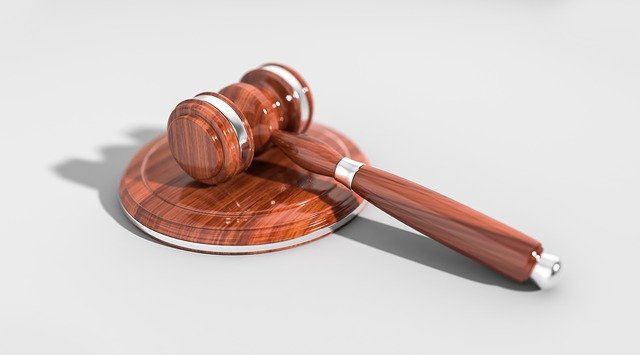Avoid Legal Battles by Knowing These 4 Blogging Laws

Everyone, almost literally, is on the internet. Information is out there for a lot of people to see. Now, not everyone will take advantage of this free-flowing information. However, there will be unavoidable instances where information could get into the wrong hands and they may use it to negatively impact you.
Internet security does not just involve protecting your website from hackers. A lot of times, it may also involve protecting your audiences and yourself from potential threats like identity theft, fraud, and even plagiarism.
Here are a few basic things you need to understand to avoid future legal battles. Or maybe, to learn how to protect yourself against any possible lawsuit:

Privacy policies and screening personal information
What it is about: It is always important to inform your readers and audiences how personal information they have supplied to your website will be collected, handled, and processed. This is more important for situations when banking details are involved.
An example: Collecting personal information of readers and audiences for subscription packages. Sometimes, for donations and payments, you might also need to collect bank information from your readers and audiences.
Avoid these legal battles: It is required by law to have a privacy policy on any blog. Usually, this includes the following:
- Specifics of personal information collected from readers and audiences
- Discuss how this information will be used
- Detail how this information will be safeguarded
- Compliance with local state laws on privacy
- Disclosure of cookie usage
- Detailing Child privacy protection policies
Copyright laws and copyright infringement
What it is about: At the beginning of the internet, there was a gray area on work ownership and payments. Although there was already information on who sells their copyrights, it was downright difficult to detect who uses the works for their own benefit. In the recent decade, Federal law protects authors of original works.
Copyright laws are so important that even Google Search, Google Images, and other browsers have strict rules about attribution. Browsers usually indicate which works are licensable, be it a video, photo, or other works.
An example: You realize that another blogger or influencer is recreating your work on their own platforms.
Avoid these legal battles: You can get protection for your own original work that you post online even without registration. However, for better protection, you could have your work registered at the Copyright Office in Washington, DC for a fee.
Terms, Conditions, Disclosures, and Disclaimers
What it is about: There are a lot of websites with pop-ups that show disclaimers, terms, conditions, and agreements between website owner and reader. It is very important that the readers are informed prior and you have confirmation that they agree with such information. Whether or not it is simply clicking an ‘I Agree’ button, getting that approval or confirmation may be essential in many instances.
An example: You may never know when readers take your advice and use it. Sometimes it will work like a charm, but there will always be instances when it turns out negatively. Some readers may actually sue you for this.
Avoid these legal battles: If you are writing anything about medical or financial topics, it might be important to include a disclaimer. Although it may not be mandatory, it allows your readers to take the information you give them to a professional before they make decisions. It might also be a good idea to put in terms and conditions on your website, to create a distinction between your intellectual property and how your readers should handle information from your blog. Disclosure may also be necessary to inform that your post is being sponsored or not, or if you are simply posting an ad for a brand.
Creating a solid contract
What it is about: This is a common, avoidable, problem many bloggers and influencers have regularly. Some use ‘friendship’ as a reason to not create a binding contract, others are laziness to produce paperwork and documentation. But most importantly, many bloggers and influencers do not have legal counsel of their own.
An example: Two influencers are doing a collaboration for a piece to be posted on social media. They did two video blogs, one for each influencer’s channel or platform. They did not agree on the payment scheme, profit divisions, or whatever beforehand. One influencer gets more interaction online than the other.
Avoid these legal battles: You can create your own contract format by doing a bit of research. However, you can always ask a lawyer to write you up a generic contract you can use for your collaborations, sponsors, and vendors. Just make sure there are important details about the following:
- A complete and detailed list of product or service from each party
- Make sure to indicate ownerships of copyrights, trademarks, etc for any party involved.
- Detailed costs with clear payment terms (yes, that includes refund policies)
- Terms on legally terminating the contracts.
DISCLAIMER: For any legal advice, problems, contract writing, etc – always consult with a professional.
Also read: See these Personal Style Blogs Before You Start your own
Civil Engineer by profession, Writer by passion. Serving readers since 2014 on different niches like Science, Current Events, Tech, and Travel.

